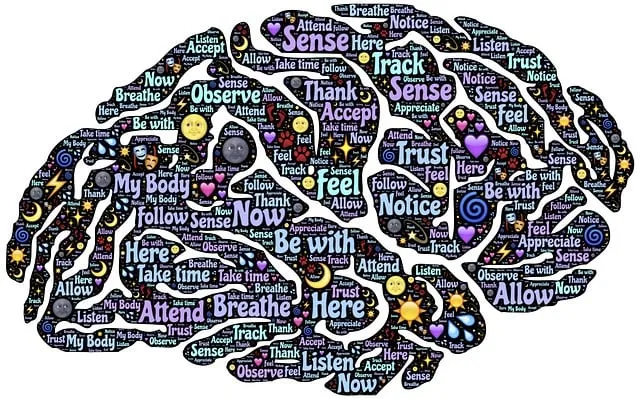In today's diverse society, cultural sensitivity in mental healthcare is crucial for personalized, effective treatment. Kaiser Permanente mental health center reviews Longmont highlight that understanding patients' cultural backgrounds leads to tailored care and a safe environment, empowering healing. Integrating evidence-based practices and emotional regulation techniques, as practiced at the Kaiser Permanente Longmont mental health center, fosters coping skills development and improves access to quality mental health services for all diverse populations.
In today’s diverse society, cultural sensitivity is a paramount necessity in mental healthcare. The article explores this critical aspect, focusing on how mental health professionals can navigate diverse cultural contexts effectively. We delve into the role of Kaiser Permanente Longmont, known for its advanced culturally responsive care, and provide strategies for practitioners. Understanding cultural sensitivity isn’t just a preference; it’s a crucial component that enhances patient outcomes, as evidenced by Kaiser Permanente mental health center reviews in Longmont.
- Understanding Cultural Sensitivity in Mental Healthcare: A Necessity in Modern Practice
- The Role of Kaiser Permanente Longmont in Advancing Culturally Responsive Care
- Strategies for Mental Health Professionals: Navigating Diverse Cultural Contexts Effectively
Understanding Cultural Sensitivity in Mental Healthcare: A Necessity in Modern Practice

In today’s diverse society, cultural sensitivity in mental healthcare is no longer an option but a necessity. The Kaiser Permanente mental health center reviews Longmont consistently highlight the importance of understanding and respecting patients’ cultural backgrounds, beliefs, and values. This approach ensures that individuals from various ethnic, racial, and socio-economic groups receive personalized care tailored to their unique needs. Cultural sensitivity fosters a safe and supportive environment where patients feel heard, understood, and empowered to engage in their healing process.
By adopting Mind Over Matter Principles, mental health professionals can facilitate Coping Skills Development and Depression Prevention. This involves integrating evidence-based practices that resonate with diverse populations, ensuring cultural relevance, and promoting positive outcomes. Embracing this perspective is crucial for breaking down barriers and bridging the gap between healthcare providers and patients from different cultural backgrounds, ultimately enhancing access to quality mental health services.
The Role of Kaiser Permanente Longmont in Advancing Culturally Responsive Care

Kaiser Permanente Longmont stands as a beacon of excellence in mental healthcare, renowned for its commitment to advancing culturally responsive care. As one of the leading Kaiser Permanente mental health centers, it plays a pivotal role in shaping more inclusive and effective treatment strategies. By prioritizing cultural sensitivity, the center ensures that every patient, regardless of their background, receives personalized support tailored to their unique needs.
This dedication is evident through various initiatives focused on emotional intelligence and inner strength development. The healthcare professionals at Longmont are adept at integrating emotional regulation techniques into treatment plans, fostering a safe and understanding environment. Their approach acknowledges the profound impact that cultural context has on mental well-being, aiming to bridge gaps in care and create a supportive space where patients can thrive.
Strategies for Mental Health Professionals: Navigating Diverse Cultural Contexts Effectively

Mental health professionals at Kaiser Permanente mental health center reviews Longmont play a vital role in fostering effective care within diverse cultural contexts. Navigating these complexities requires a nuanced approach, encompassing a deep understanding of individual and community cultural beliefs, values, and practices. By integrating Cultural Sensitivity in Mental Healthcare Practice, practitioners can ensure their interventions are culturally aligned, building trust and enhancing therapeutic outcomes.
For instance, incorporating Compassion Cultivation Practices can foster an environment of safety and acceptance for individuals from varied backgrounds. Crisis intervention guidance should reflect this sensitivity, recognizing the impact of cultural factors on coping mechanisms and responses to trauma. Through ongoing training and self-reflection, mental health professionals at Kaiser Permanente Longmont can masterfully navigate these diverse contexts, ultimately delivering compassionate and culturally competent care.
Cultural sensitivity is a cornerstone of modern mental healthcare, as evidenced by organizations like Kaiser Permanente Longmont, which has pioneered culturally responsive care. By understanding diverse cultural contexts and implementing effective strategies, mental health professionals can significantly enhance patient outcomes and experiences. As reviewed in Kaiser Permanente mental health center Longmont assessments, these practices not only foster trust but also revolutionize mental healthcare accessibility, ensuring that folks from various backgrounds receive the compassionate, tailored support they deserve.






